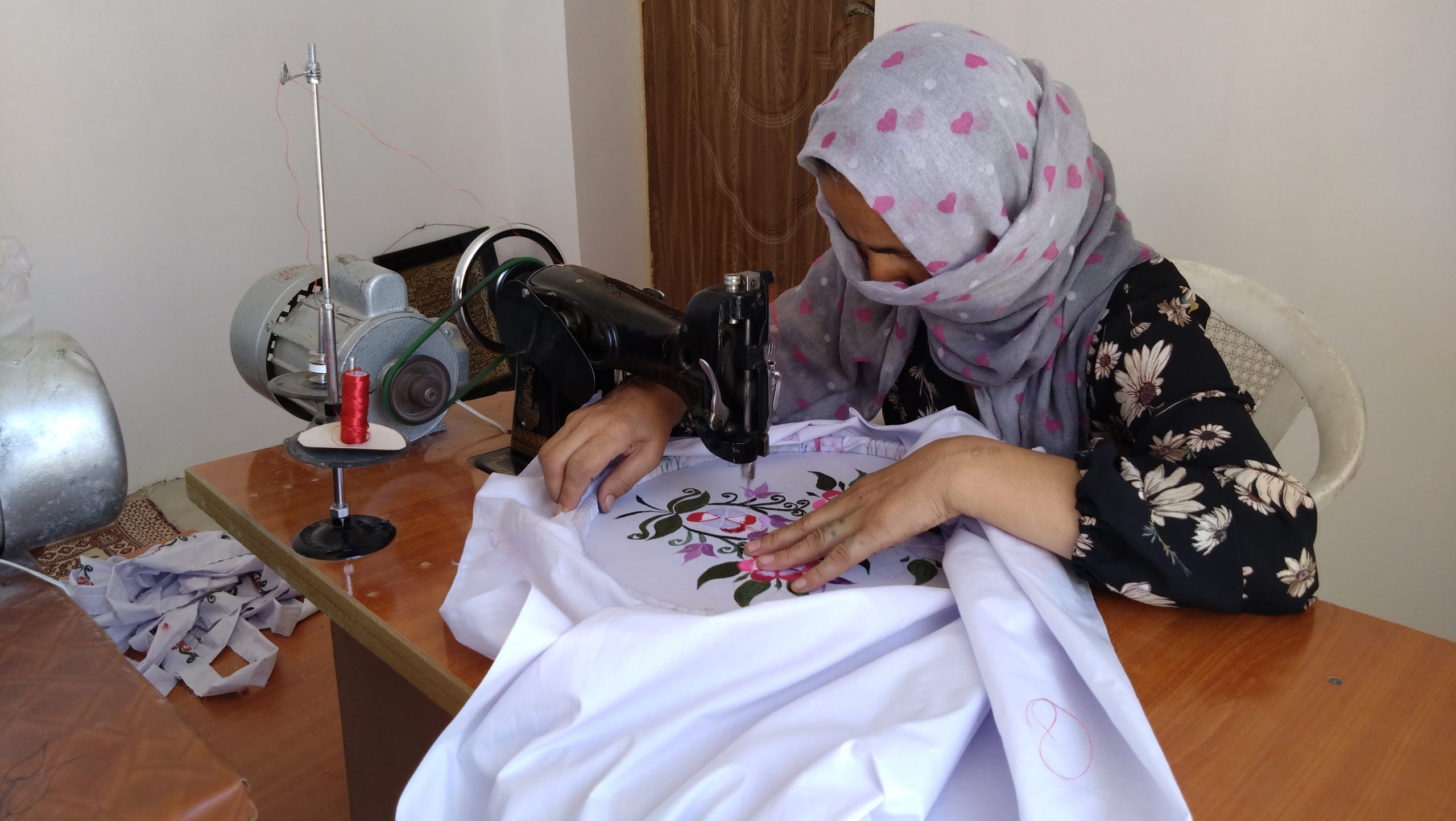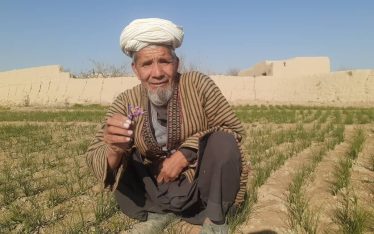Pesta Gul, a 43-year-old woman and a devoted mother of four children, two daughters, and two sons, is a member of the Tawana Self-Help Group, actively involved in the field of embroidery. She obtained essential tools and resources from the HASEL women’s empowerment project, implemented by HIHAO, which enabled her to establish a small embroidery business. Over time, her business has grown, and she now operates three sewing machines and mentors five apprentice students.
Reflecting on her experience, Pesta Gul says, “Through the comprehensive classes provided to us, I not only gained expertise in embroidery but also acquired knowledge on topics such as borrowing, savings, entrepreneurship, trade, and gender issues. I have successfully shared this knowledge with my seven students, including my own daughters.”
Previously an ordinary woman in society, Pesta Gul now holds the esteemed position of a teacher and is widely respected. She takes immense pride in imparting her skills and knowledge to others. As a woman who has acquired a valuable skill and manages her life through it, empowering other women brings her great happiness.
Pesta Gul’s husband, mostly unemployed, used to wander the streets without any substantial income. Furthermore, Pesta Gul has been struggling with rheumatism, and her husband has been unable to afford her treatment expenses. However, since joining the women’s empowerment program, their lives have taken a significant turn for the better.
“I used to feel helpless about supporting my family before, but now I can overcome economic challenges. This has been the most significant change in my life,” shares Pesta Gul, reflecting on the positive impact of the program.
The savings and borrowing sessions within their group are ongoing. Pesta Gul has saved five thousand Afghanis in the group and has previously borrowed from the group four times. As an apprentice in the embroidery class, she required financial assistance for her treatment and other essential needs. Pesta Gul explains, “I borrowed four thousand Afghanis twice and two thousand Afghanis twice to purchase medicine, and I diligently repaid the borrowed amounts as soon as I started working with the embroidery machine.”
From her embroidery machine, Pesta Gul earns approximately six to seven thousand Afghanis per month. She has established contracts with two shopkeepers in the market, who provide her with fabric pieces and garments for embroidery. Additionally, she charges around five hundred Afghanis from each of her students for her guidance and teaching.
“With this income, I can cover all household expenses. Previously, I supported the educational expenses of my two sons, who were studying, as well as my daughters, with one in the tenth grade and the other attending university. Now that girls’ schools are closed, my daughters actively assist me, taking on most of the work since I am often unwell. I provide them with necessary guidance and supervision,” says Pesta Gul, explaining how her daughters contribute to the family’s well-being.
Pesta Gul expresses her utmost satisfaction with the empowerment program, stating, “I am extremely satisfied with this program, and I strongly recommend its continuation. In these challenging circumstances, women are particularly vulnerable and in dire need of such initiatives to positively transform their lives.



